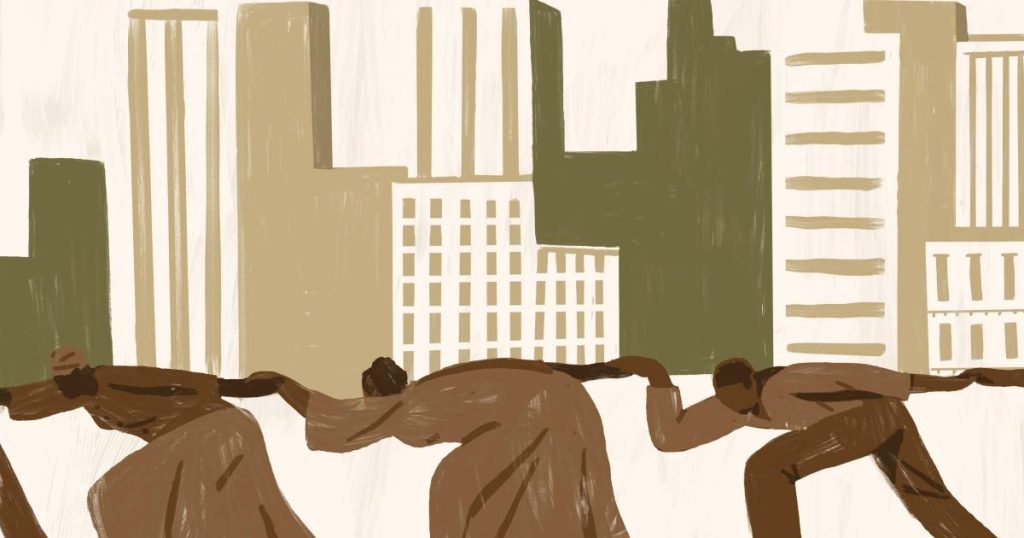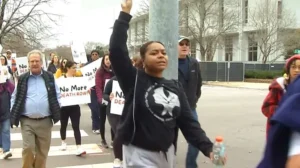By Llenda Jackson-Leslie
Philanthropy derives from the ancient Greek word meaning “love of humanity.” According to Merriam-Webster, a philanthropist “donates time, money, experience, skills or talent to help create a better world…Anyone can be a philanthropist, regardless of status or net worth.”
The tradition of Black philanthropy predates the Civil War. Black men and women joined with White abolitionists in the spirit of giving time, money and activism. Philanthropy has never been a solo pursuit. And in this season of thanks and giving, we honor the historical and contemporary warriors who – most unknown and unnamed – committed through the centuries to give back, give Black and enhance humanity.
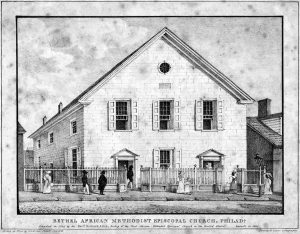 AME church in Philadelphia
AME church in Philadelphia
The Free African Society, a Black mutual aid society was formed in Pennsylvania in 1787, before the Constitutional Convention. Richard Allen and Absalom Jones, who would become leaders of the AME church, were among the founders. The Free African Society (FAS) helped support widows and orphans, the sick and unemployed and supported education for children and work apprenticeships. The money came from members who paid monthly dues in order to draw on benefits in times of need. The FAS also provided medical care and became justly famous for offering nursing care during the 1793 Yellow Fever epidemic.
Funding the Fight for Freedom
Philanthropic giving also fueled the abolitionist movement. Early Black philanthropists like James Forten and Tommy LaFon backed abolitionist newspapers. Black women like Mary Ellen Pleasant, a cook who listened unnoticed while serving white business men, parlayed that knowledge into a financial empire. Moving to California during the Gold Rush she was the first Black self-made millionaire. She supported the Underground Railroad financially and helped provide transportation and housing. She also underwrote John Brown’s raid on Harper’s Ferry.
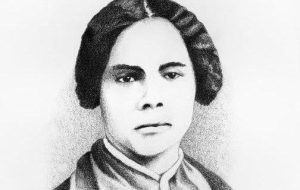 Mary Ann Shadd
Mary Ann Shadd
Mary Ann Shadd, born in 1823, was an educator, abolitionist, lawyer and the first Black newspaper publisher who founded The Provincial Freeman in Canada in 1853 where she fled draconian fugitive slave raids unleashed throughout the United States. When Shadd returned to the United States, she worked as a recruitment agent for the Union Army. Later, she moved to Washington, D.C., where she worked as a teacher and pursued law studies at Howard University and in 1883 became one of the first Black women to complete a law degree.
Black women supported the fight against slavery throughout the Civil War, raising money for the widows and orphans of union soldiers. Opening schools, orphanages and hospitals, which they self-funded through cash donations and their labor. Famed liberator Harriet Tubman, opened a home for the indigent elderly after the Civil War.
Elizabeth Keckley, seamstress to Mary Todd Lincoln founded the Contraband Relief Association in August 1862, later changed to the Ladies’ Freedmen and Soldier’s Relief Association, to “reflect its expanded mission” after Blacks started serving in the United States Colored Troops. The organization provided food, shelter, clothing, and medical care to recently freed persons, who were called contrabands.
Born one year before the end of the Civil War in Richmond, VA, Maggie Lena Walker became the first woman to own a bank in the U.S. At the age of 14, she joined the Independent Order of St. Luke’s, a Black benevolent organization that helped the sick and elderly in Richmond.In 1903, she founded the St. Luke Penny Savings Bank. She remained civically engaged through her work with the NAACP and National Association of Colored Women’s Clubs as well as her philanthropic work.
At the turn of the 20th century, Anna Julia Cooper co-founded the Colored Settlement House, the first social service agency for African Americans in Washington, D.C.Cooper would later author A Voice From the South, proclaiming, “Only the BLACK WOMAN can say “when and where I enter, in the quiet, undisputed dignity of my womanhood, without violence and without suing or special patronage, then and there the whole…race enters with me.” Her words would become a rallying cry for generations of Black women.
Leveraging Wealth
Black women business owners like Lucille Campbell Randolph, wife of A. Philip Randolph, funded progressive movements through their business acumen. Campbell Randolph was a graduate of Madam CJ Walker’s beauty school who ran a successful salon and channeled much of the profits into progressive causes.
Born in the Jim Crow era, Mollie Moon was trained as a pharmacist at Meharry Medical College. After moving to New York her social circle grew to include writers Zora Neale Hurston, Dorothy West and Langston Hughes. Later as founder and president of the National Urban League Guild, the main fundraising engine for the Urban League, Moon created the Beaux Arts Annual Ball celebrating Black art and talent.
R.E.S.P.E.C.T.
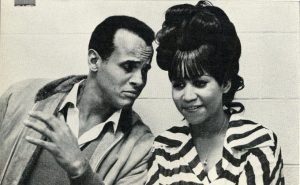 Harry Belafonte and Aretha Franklin in fall of 1967
Harry Belafonte and Aretha Franklin in fall of 1967
Aretha Franklin’s famous anthem didn’t just inspire a generation of freedom fighters, her art helped finance the Civil Rights Movement. Donating her time and artistry, Franklin embarked on an 11-city tour with Harry Belafonte and Martin Luther King. Despite dangerous protests and threats and one event that was evacuated, the Queen of Soul carried on. In doing so she followed in the footsteps of Mahalia Jackson, Lena Horne and Josephine Baker, all stellar artists who used their celebrity, time and talents to fund the freedom movement. Today musicians and performers ranging from Alicia Keys to Yara Shahidi to Rhianna to Queen Bey follow in the proud tradition of deploying their talent for a righteous cause.
Organizing for Good
Black philanthropy isn’t limited to the rich and famous. The tradition of giving runs deep and wide through the Black community. Black sororities – part of the “Divine Nine” Greek organizations – flowed out of the need to translate relative privilege into social action. Civic organizations like the National Council of Negro women have nurtured a culture of charitable giving.
When adding up all the forms and vehicles of giving, Black households donate 25% more of their income annually than white households. Nearly two-thirds of African-American households donate to organizations and causes, totaling $11 billion each year.
Learn More about Giving Black.
Llenda Jackson-Leslie is the content curator for Unerased|Black Women Speak

